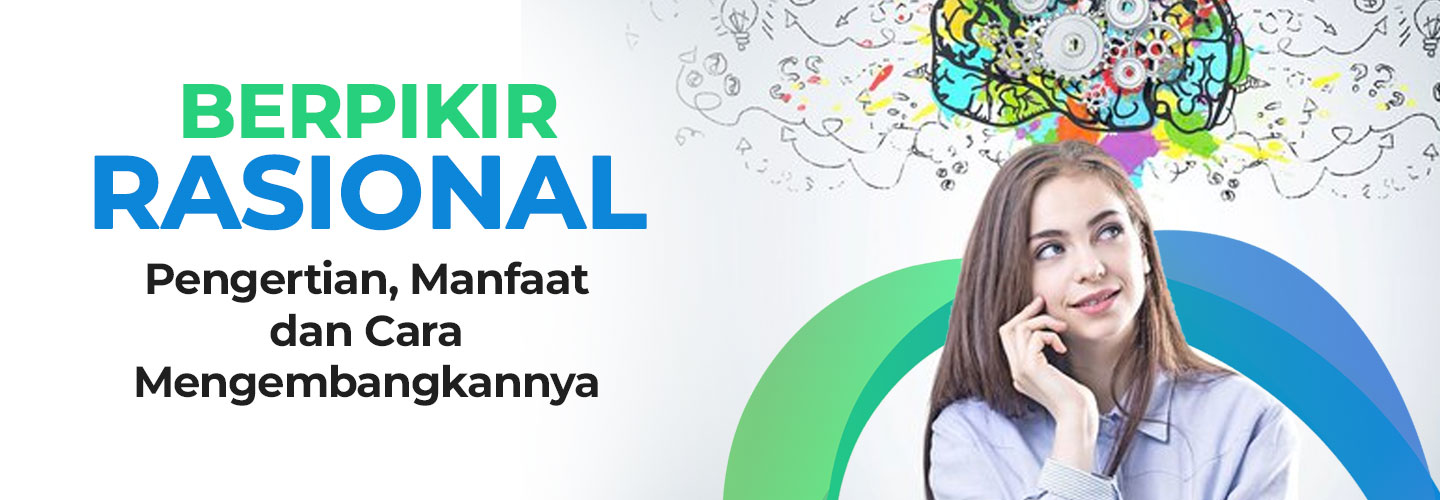Rational Thinking: Definition, Benefits, Characteristics, and How to Develop It

Rational thinking is a way of thinking using reasons and norms in making decisions or acting. Someone who thinks rationally is usually referred to as someone who uses logic and facts, without involving interests or feelings.
In this article we will discuss in depth the various aspects of rational thinking, from the benefits to how to develop it.
Understanding Rational Thinking
Rational thinking is the ability to process and understand a topic with facts, logic, and data. The goal is one, to produce the most reasonable reasons or solutions.
In the rational thinking process, says Higher Education Digest, a person will focus on solving problems and how to achieve opportunities.
Rational thinking can be honed and developed in everyday life, both personal and professional. The ability to think rationally is also supported by a variety of other abilities, such as developing perspectives, matching facts, and conveying ideas/opinions.
Benefits of Rational Thinking
Rational thinking is believed to be the most effective way to make a decision. Therefore, check out the various benefits below:
Sharpen analytical skills
By thinking rationally, your analytical skills will also be honed because you continue to process information and facts.
Opinions expressed well
The opinions formed will be neater and more reasonable, because they are based on facts, analysis and data support.
Increase brain and emotional intelligence
Because during rational thinking your brain will be "pushed" to work harder and empathy is also used in formulating final decisions.
Increase self-confidence
Confidence arises when you can express opinions that are based on facts and solve complex problems. This ability can also be your capital in looking for a new job.
Characteristics of Someone Who Thinks Rationally
According to Lectera, here are some characteristics of people who think rationally:
Thinking about the future
In solving problems and making decisions, someone who thinks rationally will consider the future. They will not be trapped by past problems or burdens and focus on planning for the future.
Consider the consequences
Related to the previous point, when thinking about the future, people who think rationally will consider the consequences of a problem and decision. Usually they already have a "prediction" of what might happen. From there they will make the best decision.
Understand the reasons or causes
Before making a decision, usually people who think rationally will understand the reasons or causes of a problem. They will ask various questions to determine the truth and use them as facts to form decisions or answers.
Able to control emotions
Someone who thinks rationally certainly still has feelings or emotions, but these can be processed and regulated appropriately. They may seem unemotional, but actually they are able to map out what feelings are worth expressing or not.
Always learn new things
In the process of rational thinking, they will hear many new things. From there, new things will be learned, not only as a basis for making decisions, but also new values or norms of life.
Organized and neat
Someone who thinks rationally needs a neat plan. This will have an impact on daily life, for example being able to organize daily work schedules and arrange work and rest times appropriately.
Accept criticism and input
Lastly, criticism and suggestions have become their daily bread. Someone who has the ability to think rationally will be a reference when making decisions. During the process of learning new things, they also definitely don't forget correction and criticism. Both of these things will be well received and become new learning.
How to Develop Rational Thinking Skills
To develop rational thinking skills, you can start from the small things around you. Some ways are:
Putting together puzzles and riddles
Start with a relaxing activity on the weekend, namely playing games. We suggest putting together a puzzle or answering a riddle. Another thing to try is playing games where you have to solve mysteries.
Always analyze the information received
This means that you cannot just accept information, especially if you feel unsure about the information. Do simple research or ask more in-depth questions about the matter.
Share opinions and knowledge
The opinions and knowledge you share don't have to be heavy topics like economics or politics. Just discuss topics you like with colleagues or close friends. Try to convey your views based on existing experiences and facts.
Brainstorming and group discussions
In contrast to the previous point, you can hone critical thinking skills in group discussions or brainstorming. So, not only you get the benefits, but other people can also hone their skills.
Read and learn new things
The ability to read and understand new things is not easy. Someone can read, but not necessarily understand. So, to be able to develop rational thinking skills, you also have to start by reading thoroughly and understanding it.
Put your thoughts and opinions in writing
If you have difficulty conveying something orally, try putting it in writing. You can note down some of the main points to remember your opinion. Or, you can also write down your opinion or opinion in full before conveying it orally.
That's an explanation of rational thinking and an easy way to develop it. Try doing the exercises above in your daily life.
This ability will help you make the best decisions and express your opinions firmly.
Want to learn more about rational thinking and how to develop it?
Join our class and learn how to develop rational thinking skills, click here now!


